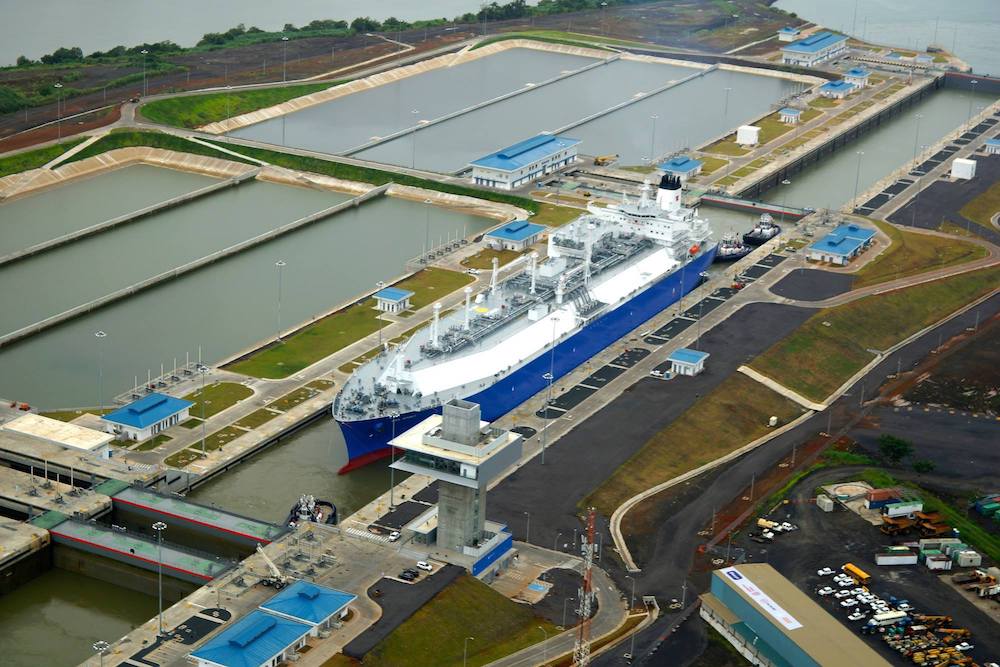The LNG carrier, Oak Spirit, transits the Panama Canal with a cargo of U.S. gas exported from Cheniere’s Sabine Pass terminal in Louisiana. Photo: Teekay
By Ryan Collins, Scarlet Fu and Julia Chatterley (Bloomberg) — What would it take for China to reduce its trade gap with the U.S.? Buy more natural gas, for a start, says Secretary of Commerce Wilbur Ross.
Diverting its purchases from other countries to America would be the “simplest” solution, Ross said during an interview with Bloomberg TV after President Donald Trump ordered tariffs on at least $50 billion in Chinese imports. Buying more U.S. liquefied natural gas would be a step in that direction, he said.
“China needs to import very, very large amounts of LNG and from their point it would be very logical to import more of it from us, if for no reason other than to diversify their sources of supply,” Ross said. “It would also have the side effect of reducing the deficit.”
Though LNG imports may help the deficit, which reached $375 billion last year, they are unlikely to put a big dent in it, Anastacia Dialynas, analyst at Bloomberg New Energy Finance, said in a research note. Chinese LNG imports may grow to 82 million tons by 2030; if the country bought all of that from the U.S., it could contribute almost $28 billion to the trade balance.
But that’s unlikely because China already has commitments for most of their gas with other suppliers. Only 40 million tons of China’s 2030 imports aren’t already under contract, amounting to just $13.5 billion in revenue at current prices, according to BNEF.
“So can LNG shipments solve the U.S.-China trade deficit? No. Could they help? Yes. Will they increase? Probably,” Dialynas said. “U.S. exporters are already courting Chinese buyers, and China is looking to diversify from Australia and Qatar, its current primary suppliers.”
China is already the third-biggest importer of U.S. LNG, behind only Mexico and South Korea. In February, Cheniere Energy Inc. became the first U.S. gas exporter to sign a long-term deal with China, agreeing to supply China National Petroleum Corp. with 1.2 million metric tons a year through 2043.
© 2018 Bloomberg L.P

 Join The Club
Join The Club











